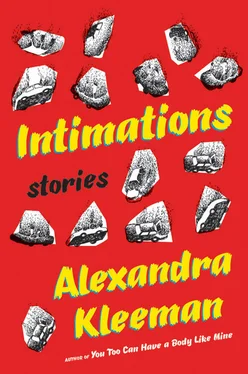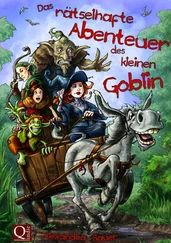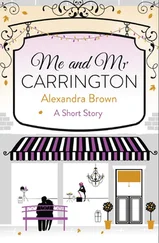A small, simple game played using words printed on white note cards, and a small black-and-white board. Mother takes a card from the top of the deck and reads it out:
Move back three spaces.
It is my turn, and I move the piece that stands for me three spaces backward on the board. Tiny, useless clouds roll by like tumbleweeds. Or would, if any wind blew within the walls of our house.
I look toward my sister.
It is Father’s turn and I read it out:
Move back one space.
Father moves his piece back one space, and takes the first card off the top of the pile:
Move back two spaces.
Mother moves her piece back two spaces. She takes the next card from the top of the pile. But I take myself to the map room, where I draw angry storms all across the midwestern United States, and both coasts.
I wander us to the room where clouds are constructed, and now we sisters look upon the same machines with similar eyes. Surrounding us are the freezing chambers, the artificial breathers, the cloud-molds and cloud-cutters.
The first of our homemade clouds were made of real breath, sighed and heaved into the chambers through an air tube. These clouds were perfect and small and a child could name them, pretending that they were a pet cat or dog. These clouds achieved a maximum volume of 6.5 liters, the vital capacity of my father’s lungs.
But larger clouds were required to replicate natural weather, and the artificial breathers were therefore invented to be larger than us, and better than us at accomplishing things they did not even want to accomplish. Like a huge plastic tube, a huge rubber lung, the mechanical breathers breathed all through the night, wheezing through dream after dream, collapsing themselves into flat rubber sacks and then drawing back up, well-oiled and smooth, and filling the chambers with a strange, moist breath that congealed into weird uncloudlike shapes.
To achieve standardized clouds for my mother’s experiments, we took these clouds that felt a little wooly, a little wet, and pushed them into the molds, making the shapes of cumulus, nimbus, cirrus, stratus, fog.
The day the machine broke, there was barely a real cloud in the sky. The blue stretched pale and cool over my father, arms full of machine scrap jostling as he strode around in sharp patterns like a ball striking against invisible obstacles, emitting liters of shouting. The blue opened up over layers and layers of empty space waiting to be filled up with big soft shapes that we had chosen. It gaped above as, at the end of the driveway, no longer shouting, he crumpled downward.
My sister is either older than me or younger than me.
She is either better than me or she is less good.
Under the right circumstances, she is able to put aside self-doubt and leap into action with reflexes that harken back to a more instinctual time, rescuing the child from the onslaught of truck wheels, train wheels, car wheels, saving the child’s life and earning the respect of townspeople and journalists.
Or else she is unable to.
The utility of a sister stems from the longing for reinforcement, for an additional, aligned person inside the house to see what is happening and feel some way about it.
This has something to do with why we are fitted with two eyes instead of one.
Approximately the same height, almost certainly the same age, we sisters crawl hand and knee down a sidewalk we have imagined to exist: three feet wide, five hundred feet long, sidling past a series of miniature houses lined up like the silences in a single day. Preferring one and then the other, we invest in these houses one by one as though we were able to see only halfway through them, through the front facade in a cutaway view, and not all the way.
In the living room, at half size, in the transparent homes we have dreamed for them and placed in our own, we crawl on hands and knees to peer in at one and the next. We have made them of ice and they melt, but slowly. The object of the game is to resist seeing all the way through these glass walls to the familiar objects that lie beyond them, to the old armchair with a dun doily on each tattered arm. Mothers and fathers in these homes of glass turn toward us and smile small, shining, glass smiles, holding up their smiles and their hands in greeting, standing still among perfect stacks of sandwiches: white bread, peanut butter, bananas. This mother, whistling as she fills brown paper bags. That mother, waving at us with one arm, the other arm around the shoulders of a gigantic glass of milk.
At this, my sister stops suddenly and makes a motion as if to dive in and leave us separate, lonesome. I grab the back of her dress and hold tight but she is so hard to hold still, my hands finding no place to make of her a handle or a knot. She whines low and mournfully, signaling as though she would like to crawl inside. Small, silly sister. She has not seen that the spell of play lasts only so long as one pretends not to wish to grasp the things that we have played into being.
In one house, they make snowman versions of themselves, which come slowly to life and begin slowly a series of ordinary things that the family watches, entranced. The snowmen notice us watching, then all the inhabitants of the house turn to us and wave.
In another house, they invent a device to control the weather. When I look into this house and count the number of persons inside, I begin to cry.
The fact of two sisters allows an escape into situations that could not be accommodated by only one. With two, we may hide in the cupboard for hours, pretending we are somewhere else entirely, without ever having to feel ourselves alone.
From the cupboard, I gaze at her and beckon her in. My knees hunched up by my ears.
The fact of two sisters allows for escape within a situation that is hostile or unfair. Certain species of cicadas lie dormant in their burrows for seventeen years of hibernation, before bursting forth to eat and eat and fly about in the air.
Certain species of birds time their own hatching to meet the soft new cicadas when they emerge.
I set the table, four plates and four sets of silverware for our small careful family.
With her face set in a shape of preoccupation, my mother removes the fourth plate and places it back in the cupboard.
I see my sister’s face grinning back at me from the cupboard, a space so small I cannot imagine how I would fit with her in there.
I can see my sister crouching in the living room, playing over something I cannot see.
A toy?
The reasons for a sister are manifold, and if we could persuade her to speak she would give them for herself. The house is emptier every day, less populated, the doors all shut, the objects seem to disappear from tabletops. It is like a leak has opened up someplace we cannot see or sense; there has been no one to watch or be watched by. The eyes grow restless, finding faces in the folds of curtains, crockery, closets.
For another, too few games can be played alone.
I played a game alongside my parents at breakfast. It began with all players picking up a section of the newspaper and opening it up at the fold. My father shakes it three or four times, with a disappointed sound. My mother begins with the headlines and then the little sections, then the longer articles. We went through it, piece by piece, until all was read. We consumed the little letters in their little blocks, then we turned the page for the others.
My newspaper was imaginary, and I finished first.
I watch from the doorway, an empty frame. This door has been taken off its hinges to prevent it from being slammed shut. The resulting air flow, expelled at the velocity of anger, could shake a house to dust. The door has been taken off and taken where?
Читать дальше












